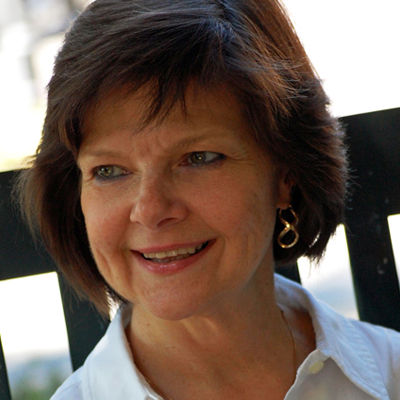Pocket of the World: Liz’s Story
And Why Wings of Hope: A Butterfly Release Matters
Liz thought it was a regular sunny afternoon in May 2009 when she returned home — until she discovered three messages on her answering machine. One from her gynecologist, one from her primary care doctor, and one from the radiologist who read the mammogram.
Three doctors, each one urging her to call.
“‘That isn’t good,’ I said to my husband. ‘Doctors don’t call when everything is fine,’” she says, shaking her head.
Breast cancer? There was no lump, and she was only 50. Stunned, angry, dismayed, and disbelieving, she phoned her gynecologist and spoke to the nurse who, flustered, told her she needed to come in for her first cancer treatment.
But still, as much as Liz panicked, and as much as her husband calmed her, there was a part of her that didn’t believe the report. She insisted on seeing the mammogram herself; she had to be convinced. “My gut dropped. When you see a big grey and black mass on this year’s mammogram that you didn’t see on last year’s, you just know. I got a sinking feeling,” says Liz. She places her hand on her stomach.
It took six days to find out the results of the biopsy. And even the Bruce Springsteen concert she attended couldn’t assuage her fear. All she could think about was cancer growing in her body. “That was the most hellish time,” she reports. “Your mind just goes to mush.”
Her first surgeon only made matters worse. “He gave me the news and the options. My husband and I had a list of questions, but noticed that after 20 minutes he kept looking at his watch. I asked if he was in a rush, and he answered that he’d had a rough week and had to go to an appointment–a Friday afternoon golf game, I think.” Liz voice hardens in outrage.
Fuming, she tossed all the appointment cards that the nurse had placed in her hands in the hospital trash the moment she closed the door to the office. And then she cried. She hated that doctor, the hospital, the cancer. “It was a bright sunny day, and I had a meltdown.”
But then, she gathered her wits, did her research, and found referrals from her friends. Her next surgeon was a match. “He taped our first meeting, telling me that I wasn’t myself when I came in there. He gave me the tape, and insisted I get a second opinion. We discussed treatments.”
Liz opted for a lumpectomy and the removal of six lymph nodes. When the pathology report indicated that her cancer—HER2 positive—was very aggressive, her doctor phoned her, and for a half hour they discussed a different treatment plan. Now it would be chemo followed by radiation. “Six heavy-duty rounds, followed by a light round,” Liz recalls. “I was exhausted from August through December.”
And two weeks after her last treatment, she was suddenly reeling from a 103-degree temperature and a blood infection, although no one knew if it were from her treatment. She spent Christmas in the hospital. “But all the while, I was grateful that I was in a place where I could be taken care of,” she smiles, running her fingers through her chin-length brown hair.
And then, radiation began: 39 sessions for five days a week. Luckily, except utter exhaustion, she had few of the expected side effects. She continued to work. It was all part of her view of not giving into cancer, her attitude of fighting it.
Still, there was a chink in her armor. “I learned a long time ago that no matter how strong you are, you are stronger when you ask for help.” Her voice firmed up. “I love my husband and family dearly, but they didn’t have cancer. As strong as I think I am, I wanted to be around people who knew what it was like to have cancer.
“When you go through chemo, you do a lot of sitting around. That’s where I found a pamphlet about the Cancer Support Community.” Liz’s voice is lilting. “After my first group, I knew I was in the right place. I came out laughing. We talked about doctors, treatment, and crazy stories about our cancers. I found warm, supportive, and loving men and women.
“We laugh together, eat together, go to funerals together. They are my friends for life, above and beyond cancer. We genuinely love each other, and we all come from different walks of life. But for cancer, we wouldn’t have met each other. This is the most inspirational group of individuals I know.”
She is talking about the Tuesday Night Support Group, a group that has found strength and joy in one another’s company. This is the group that last year not only went to Wings of Hope: A Butterfly Release, but also purchased a curtain—on which they pinned colorful paper butterflies with the names of group members and other loved ones.
And this year, Liz returns to Wings of Hope on Saturday, September 8. “There is a display of curtains, covered with hundreds of paper butterflies, with the names of loved ones on the wings. When you see the magnitude of this disease in this one little pocket of the world, you think, ‘How can there be that many people affected by cancer in this corner of the world?’ It brings tears to my eyes.
“This is a heartwarming event at the end of summer. It’s not a huge time commitment. In this tiny two-hour commitment, in a little spot in the world, we honor people in a special, almost mystical way through butterflies. They go through an ugly larva stage, then they turn into beautiful insects, and fly away. They are a symbol of transformation.”
Liz knows.


